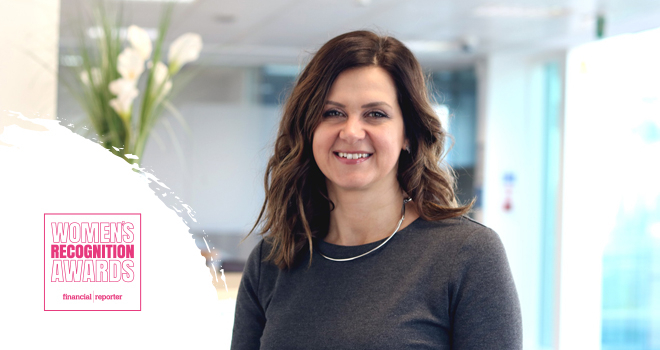
"I have always believed flexible working is a two-way street; it gave me time to pick up my kids from school, but I have also bent myself out of shape to fit everything in without compromising my career."
- Jacqueline Durbin, Global Head of Product (Life, Pensions & Mortgages) at Iress
“I work ‘part-time’ – there I’ve said it out loud.”
Shortly after, Jacqueline Durbin, Global Head of Product (Life, Pensions & Mortgages) at Iress, confessed to having mixed emotions about saying it as she’s never wanted to be thought of as ‘less than’ by colleagues and clients alike.
Speaking to Protection Reporter, Jacqueline explained that she hasn’t worked ‘full-time’ since the birth of her first child in 2006. But, making it work hasn’t always been easy; “It’s taken me years to stop feeling guilty about rescheduling meetings so I can take my children to school.”
“You never want to be the parent with a child sat on the nursery doorstep […] but that happened to me, quite a lot of the time,” Jacqueline disclosed. Looking back, she recognises that nobody required an explanation as to why she needed to leave a meeting on time; “You wouldn’t feel bad if you had another meeting to attend, so why should you feel bad for needing to collect your child from nursery?”
“You put a lot of pressure on yourself, but historically, there are other factors that make you think other people are judging you for not working ‘full-time’.”
Jacqueline said she’d heard jokes about her working ‘part-time’ for over a decade, and even within organisations that value flexible employees, “you still get some ‘traditional’ and outdated views that chip away at your confidence.”
Discussing the relationship between ‘part-time’ and employee benefits, Jacqueline said she experienced an overall reduction in what she was entitled to and an alarming deduction to her pension. “When going through my divorce, I saw the accumulative impact with less going into my pension as I’d been on maternity leave and then returned to work ‘part-time’,” she explained.
“Anything that’s related to your salary, including death benefits, can be affected by that reduction in monthly earnings.”
Jacqueline described flexible working as a ‘two-way street,’ “because I wouldn’t ever expect to take and give nothing back in return.” To be in both a leadership and client facing role, she felt that “you can’t have rigidity; I might work reduced hours on Fridays but where possible, I’ll work until whatever time is necessary to get the work done.”
This ‘two-way’ flexibility has assisted Jacqueline throughout her career. “If I had continued to work ‘full-time’ I might have reached breaking point, whether that was during my divorce, becoming a blended family, or going through the menopause,” she said.
“It’s not just about supporting ‘part-time’ parents, it’s about supporting everyone through the life cycle of employment.”
In recent years, Jacqueline has noticed “generational changes” in the workplace, “prompting a wider acceptance that ‘part-time’ has benefits and doesn’t equal a reduction in productivity and quality of work.” She believes this is a crucial step in the right direction, especially considering the UK’s ageing population. According to the Office for National Statistics (ONS), 3.6mn older people are working ‘part-time’ in the UK – this is a 12% increase since 2021. “It’s not all about making room for the younger generation; it’s about working together and learning from our role models,” Jacqueline emphasised.
“We need to acknowledge that if the length of everyone’s career extends into retirement, is ‘full-time’ employment sustainable?”
Since flexible working is a ‘two-way street’, Jacqueline asks whether we should begin negotiating salaries based on contribution and results rather than a fixed amount of time. “It’s not just about presenteeism, it’s about contribution and effort,” she explained.
“We need to stop saying people who work ‘part-time’ are worth less,” she concluded.
